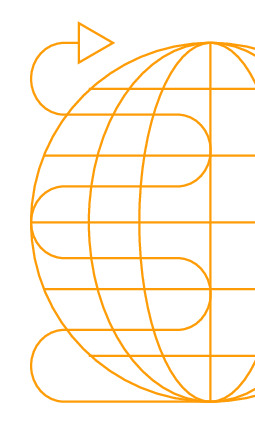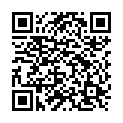|
|
|
| Module code: BITM-240 |
|
|
2V+2VU (4 hours per week) |
|
5 |
| Semester: 2 |
| Mandatory course: yes |
Language of instruction:
German/English/French/Spanish |
Assessment:
Written exam + written composition with presentation (60 minutes / Weighting 1:1 / Can be repeated annually)
[updated 17.09.2018]
|
BITM-240 (P440-0084, P440-0107) International Tourism-Management, Bachelor, ASPO 01.10.2013
, semester 2, mandatory course
BITM-240 (P440-0084, P440-0107) International Tourism-Management, Bachelor, ASPO 01.10.2015
, semester 2, mandatory course
BITM-240 (P440-0084, P440-0107) International Tourism-Management, Bachelor, ASPO 01.10.2017
, semester 2, mandatory course
BITM-240 (P440-0084, P440-0107) International Tourism-Management, Bachelor, ASPO 01.10.2020
, semester 2, mandatory course
|
60 class hours (= 45 clock hours) over a 15-week period.
The total student study time is 150 hours (equivalent to 5 ECTS credits).
There are therefore 105 hours available for class preparation and follow-up work and exam preparation.
|
Recommended prerequisites (modules):
BITM-110 Principles of Business Administration
BITM-111 Principles of the Tourism Sector
BITM-140 Mathematics
[updated 25.10.2012]
|
Recommended as prerequisite for:
BITM-320 Management in the Tourism Industry
BITM-530 Information, Communication, and Reservation Systems
BITM-580 Economic, Cultural and Tourism Geography
BITM-W-01 Destination Management
BITM-W-02
BITM-W-03 Leisure, Sports, Adventure Management
BITM-W-04 Hotel Management
BITM-W-05
BITM-W-06 Cultural Management
BITM-W-07 MICE Management
BITM-W-08 Mobility Management
BITM-W-09 Tour Operating
BITM-W-10
BITM-W-11
BITM-W-12 Tourism Sociology and Psychology
BITM-W-13 Wellness and Health Tourism
BITM-W-14 American Spring Academy
BITM-W-18
[updated 30.10.2012]
|
Module coordinator:
Prof. Dr. Achim Schröder |
Lecturer:
Prof. Dr. Achim Schröder
Prof. Dr. Nicole Schwarz
[updated 25.10.2012]
|
Learning outcomes:
After successfully completing this module students will be able to:
- demonstrate a basic understanding of marketing and its position in the corporate context,
- give an overview of the tasks and functions of marketing,
- critically reflect on marketing activities with regard to society,
- explain the importance of consumer behaviour research,
- name marketing mix tools (product, price, communication, distribution and process policies) and relate them to industry-specific and international peculiarities,
- illustrate connections between the importance of information in the marketing process and the essential tasks of market research,
- identify essential tasks and forms of market research,
- structure and implement the market research process in different phases,
- be able to describe essential sampling procedures, methods and tools for gathering information
- develop solutions for problems and questions in the fields of tourism marketing and market research, implement them in a project and document and present their results in a presentation, either independently or as part of a team.
[updated 17.09.2018]
|
Module content:
Marketing
-Basic concepts of marketing and the classification of marketing in the business context of international tourism companies
-Critical assessment of the impact of marketing on society
-Principles of consumer behavior
-Market segmentation methods, transnational target groups
-Fields of action within the marketing mix in tourism: product policy,
communication policy, pricing policy, distribution policy, process policy in
international tourism companies
Market Research
- Basics and concepts of market research
- The market research process
- The survey: types of questions and the development of survey forms
- Non-random sampling
- Data evaluation, analysis and interpretation (SPSS)
- Documentation and presentation of market research results
- Market research institutions and organizations
- Importance of information in the marketing decision process
- Other methods of gathering information
[updated 17.09.2018]
|
Teaching methods/Media:
Lecture with case study work
Conception and implementation of a market research project on a problem from the field of recreation and tourism.
[updated 17.09.2018]
|
Recommended or required reading:
Bruhn, Manfred: Marketing. Grundlagen für Studium und Praxis, Gabler, Wiesbaden, latest edition
Fantapié Altobelli, Claudia: Marktforschung: Methoden, Anwendungen, Praxisbeispiele, UVK/Lucius, München, latest edition
Fantapié Altobelli, Claudia; Hoffmann, Sascha: Grundlagen der Marktforschung, UVK/Lucius, München, latest edition
Freyer, W.: Tourismus-Marketing, München: Oldenbourg, latest edition
Koch, Jörg: Marktforschung. Grundlagen und praktische Anwendung, Oldenbourg, München, latest edition
Kotler, P. et al: Grundlagen des Marketing. München: Pearson Studium, latest edition
Kroeber-Riel, W., Weinberg, P., Gröppel-Klein, A.: Konsumentenverhalten, München, Vahlen, latest edition
Meffert, H. et al.: Marketing. Grundlagen marktorientierter Unternehmensführung. Wiesbaden: Gabler, latest edition
Meffert, Heribert et al.: Internationales Marketing-Management, Kohlhammer, Stuttgart, latest edition
Meffert, Manfred; Bruhn, Manfred: Dienstleistungsmarketing: Grundlagen -Konzepte _ Methoden, Gabler, Wiesbaden, latest edition
Schnell/Hill/Esser: Methoden der empirischen Sozialforschung, Oldenbourg, München, latest edition
Seitz, Erwin; Meyer, Wolfgang: Tourismusmarktforschung, Vahlen, München, latest edition
Market research studies in tourism, e.g. Reiseanalyse, Deutscher Reisemonitor, Tourismus in Zahlen etc.
[updated 17.09.2018]
|


